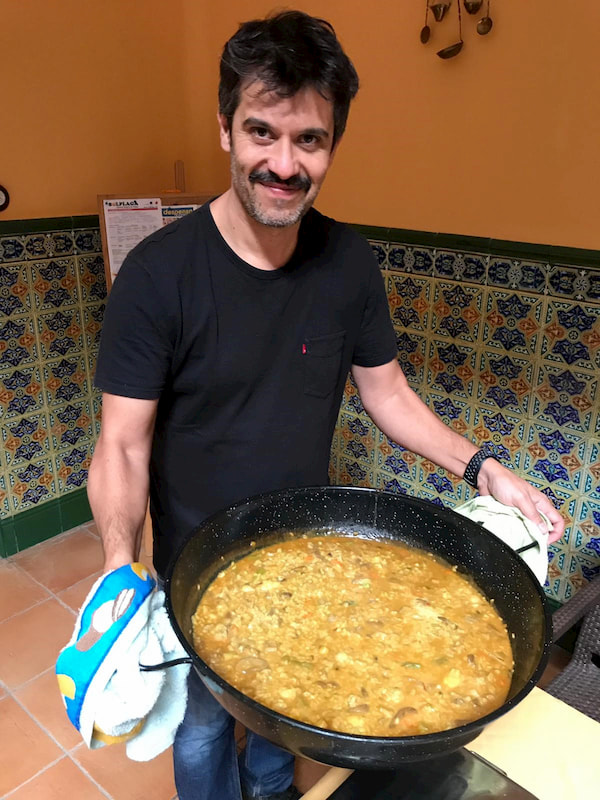Íñigo Aberasturi, Global Chief Marketing Officer of Ebro Foods, has been part of the food industry for more than 20 years. He started in the ice cream sector, he has worked with canned veggies, spirits and energy drinks “until I arrived at the wonderful world of rice and pasta. Undoubtedly, all sectors are interesting, but when you’re passionate about eating and cooking… food is very enjoyable, plus it is a fast-paced and challenging environment”.
According to Íñigo, consumers almost always want the same thing, to eat better: “the key is to understand what the consumer means by “better”. The main difference is that for years eating better has had a broader meaning: health, pleasure, convenience, and price. That is from a product standpoint. In the area of brand or company values, we are looking for brands that are engaged, sincere, sustainable, and have open dialog.” In his view, the reason for this evolution is the ability of individuals to influence organizations thanks to technological advances.

Today, we are looking for brands that are engaged, sincere, sustainable, and have open dialogue.
In general, how is the food industry, and specifically Ebro, adapting to these developments?
Well, I think it is clear that the industry has made a qualitative leap, partly driven by consumer demand and partly by the emergence of start-ups, which have stirred changes in processes and beliefs. Without exception, I believe companies have reformulated products, have become more transparent, and have redefined themselves in search of a mission that improves society while embracing sustainability programs. Ebro has been working on this for a long time; our mission and goal is for people to eat better, which is why we are continuously developing and improving our product range. Salt reduction programs, zero tolerance for artificial ingredients, organic products, fair trade, eliminating plastic, and all areas in our Caring for You and the Planet program, which intensifies our commitment to working directly with farmers on sustainability programs, thus improving our environment and therefore our planet.
Without exception, I believe companies have reformulated products, have become more transparent, and have redefined themselves in search of a mission that improves society while embracing sustainability programs.
In line with the global viewpoint that comes with your position, which countries are anticipating major trends?
That is a very complicated question in reference to our specific rice segment. I would tell you that, globally, I find the most inspiration in the UK and USA (leaving Asia aside).
As a country, are we more of an exporter or importer of concepts? Or vice versa?
Keeping in mind our company’s results, the truth is that Spain has been a driver of innovation, especially in rice. Here, we embrace this product with a lot of passion, and we have extensive knowledge of the raw materials and processes.
What main innovations has Ebro successfully exported to the rest of its companies world-wide?
Of the products developed in Spain, I believe that microwaveable rice cups are clearly the most significant success story. We have been able to replicate that success in the USA, in Canada, and in Northern Europe… And in terms of a more recent success, I think we were the first to spot the “super grains” trend like quinoa and exploit it successfully both in Spain and abroad.
To what extent do new technologies and new forms of communication influence Ebro Foods marketing?
Well, they influence us in a very important way. For a while now, the digital part has exceeded the traditional in our global investment. I honestly believe that the work being done in the digital environment is very advanced (Spain is leading the way). The capacity for segmentation afforded both by consumers and by the message offers us an asset that we could not have previously imagined.
In a Group with a multi-country, multi-company, and multi-brand profile, is a common marketing strategy possible or on the contrary, do marketing strategies need to vary from country to country?
I believe that part of our hallmark is a firm belief in the local vision. As you have said, our brands are local and in many cases have a deep and lengthy historic connection to consumers. My job is to align the company’s master plan and vision, but always respecting the characteristics of each country. And yes, this makes my work both exciting and complicated!
Our brands are local and in many cases have a deep and lengthy historic connection to consumers.
Can you explain some of the most successful campaigns you’ve ever run and why you think they worked so well?
Our many successful campaigns have more to do with the talent of local teams than with me. So we will leave that for them to answer in their interviews.